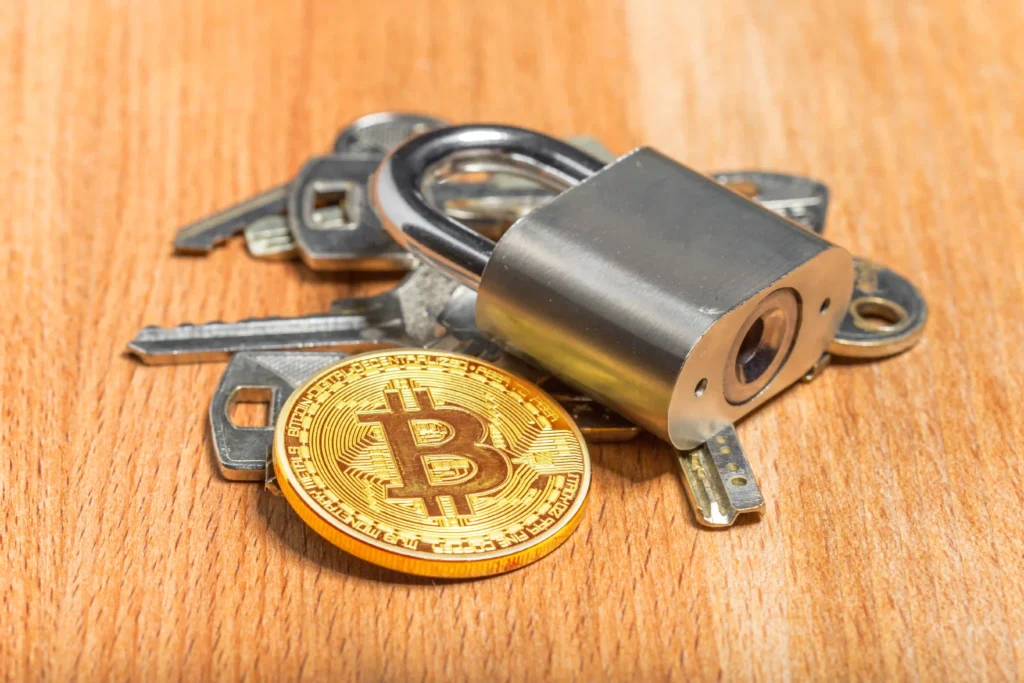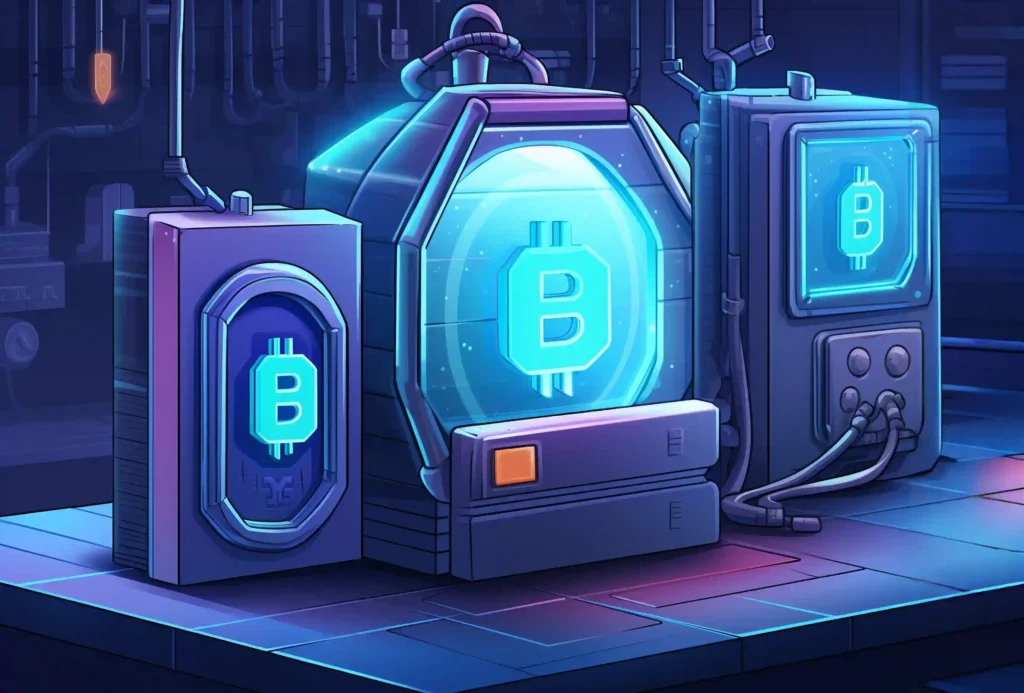The Most Secure Crypto Wallets for Storing Bitcoin in 2025
In 2025, millions of people are investing in cryptocurrencies like Bitcoin, drawn by the promise of decentralized finance, privacy, and financial freedom. However, with increasing adoption comes a growing threat landscape: hacks, phishing attacks, and wallet vulnerabilities continue to make headlines. That’s why choosing a secure crypto wallet is not just important—it’s essential.
As a reader of Global Crypto Sports, you’re already tuned into breaking news in the crypto world. But today, we’re shifting focus to something just as major: how to safeguard your Bitcoin. Whether you’re a beginner dipping your toes into Web3 or an intermediate investor consolidating your assets, this comprehensive guide will walk you through the most secure crypto wallets of 2025, what makes them reliable, and how to choose one that fits your needs.

1. Understanding Essential Terms
Before we dive into the wallet options, let’s define a few key terms so everyone’s on the same page:
- Blockchain: A decentralized, immutable ledger where all Bitcoin transactions are recorded. Think of it as a digital ledger that no central authority controls.
- DeFi (Decentralized Finance): Financial services like lending, borrowing, and trading, executed without intermediaries, using smart contracts.
- Web3: The next generation of the internet—decentralized, peer‑to‑peer, and powered by blockchain technologies.
- Decentralized Wallet: Also called non‑custodial wallets—you alone control the private keys. Unlike custodial platforms, there’s no middleman.
- Crypto Wallet Security: Encompasses practices like keeping private keys offline, using strong PINs, and securely backing up seed phrases.
These terms are critical to understanding how your Bitcoin moves, how your wallet functions, and how to keep your funds safe from prying eyes.
2. Wallet Categories: Cold Wallets vs. Hot Wallets
2.1 Cold Wallet (also known as hardware or paper wallet)
- Definition: A non‑internet‑connected wallet that stores private keys offline.
- Examples: Hardware devices like Ledger Nano X, Trezor Model T, or even paper wallets.
- Pros:
- Resistant to online hacks and malware.
- Often includes PIN protection and device passphrase.
- Cons:
- Requires physical safekeeping.
- Less convenient for daily transactions.
- Why it’s one of the best crypto wallet 2025 options: For long‑term storage, cold wallets remain the gold standard of security.
2.2 Hot Wallet
- Definition: Internet-connected wallets, including desktop, mobile, or web browser extensions.
- Examples: Exodus, Electrum, MetaMask (for Bitcoin via plugins or forks).
- Pros:
- Easy access for regular use.
- Faster transactions and DeFi integration.
- Cons:
- Vulnerable to phishing, malware, and online breaches.
- Hosting a party might be compromised if custodial.
- Suitability: Good for frequent users, day-to-day trades—but always combine with strong wallet backup techniques and device hygiene.
3. Top Secure Crypto Wallets for Bitcoin in 2025
Here’s a breakdown of the most trusted wallets, categorized by type:
3.1 Hardware Wallets (Cold Wallets)
Ledger Nano X / Nano S Plus
- Highlights:
- Secure Element (SE) chip storing private keys offline.
- Bluetooth (Nano X) and USB (Nano S Plus) connections.
- Regular firmware updates; supports hundreds of coins including Bitcoin.
- Security Features:
- PIN entry, passphrase protection, recovery seed.
- Open-source cryptographic libraries (Nano S Plus).
- Best For: Savvy users seeking the best crypto wallet 2025 with top-tier crypto wallet security.
Trezor Model T / One
- Highlights:
- Open-source firmware and robust community audits.
- Touchscreen Model T; USB-only Trezor One.
- Security Features:
- Shamir backup (Model T) for advanced wallet backup options.
- Seed phrase and passphrase protection.
- Best For: Privacy-conscious users valuing transparency and open‑source code.
3.2 Mobile Wallets (Hot Wallets)
Trust Wallet
- Highlights:
- Multicurrency support, including Bitcoin.
- Built-in DeFi browser for Web3 interaction.
- Security Features:
- Local key storage; encrypted on device.
- Biometric and PIN unlock.
- Social recovery features.
- Best For: Everyday users seeking convenience, DeFi access, and strong mobile security.
BlueWallet
- Highlights:
- Designed specifically for Bitcoin.
- Supports Lightning Network, multi‑signature, watch‑only wallets.
- Security Features:
- Non‑custodial; keys stay on the device.
- Backup through BIP39 seed phrase.
- Best For: Bitcoin users wanting advanced features within a mobile hot wallet.
3.3 Desktop Wallets (Hot Wallets)
Electrum
- Highlights:
- Lightweight, classic Bitcoin wallet known for speed.
- Supports cold-storage integration and multisig.
- Security Features:
- Two‑factor authentication, encrypted wallets, and offline signing.
- Best For: Intermediate users needing power features and strong crypto wallet security.
Wasabi Wallet
- Highlights:
- Built-in CoinJoin for enhanced transactional privacy.
- Security Features:
- Non‑custodial with strong privacy enhancements.
- Best For: Privacy-oriented users wanting decentralized Bitcoin transactions.
3.4 Multi‑Device Hybrid (Cold + Hot)
Coldcard + Electrum Combo
- Highlights:
- Coldcard (hardware) for key storage; Electrum for interface.
- Security Features:
- Private keys never leave the hardware wallet.
- Air‑gapped design of Coldcard ensures superior crypto wallet security.
- Best For: Power users needing top‑level security with interface flexibility.

4. Comparative Overview: Pros & Cons
| Wallet Type | Examples | Pros | Cons |
|---|---|---|---|
| Cold Wallet (hardware) | Ledger, Trezor | Maximum security, offline key storage | Less convenient; requires device handling |
| Mobile Hot Wallet | Trust Wallet, BlueWallet | Convenient, fast, DeFi-enabled | Online risk; requires device security vigilance |
| Desktop Hot Wallet | Electrum, Wasabi | Powerful features, strong privacy (Wasabi) | Online risk requires device security vigilance |
| Hybrid (cold + hot combo) | Coldcard + Electrum | Best of both worlds; keys stay offline | More complex to set up; not beginner-friendly |
5. Real-World Examples & Case Studies
Case Study 1: Institutional Bitcoin Storage
A crypto investment firm in 2025 uses multisignature cold wallets across multiple hardware wallets (like Ledger and Trezor) to ensure that no single compromised device can result in asset loss. They also employ Shamir backup for distributed seed phrase storage across geographically separate vaults.
Case Study 2: Everyday User with Mobile Access
Emma, a new crypto user, prefers using Trust Wallet for her daily Bitcoin purchases and DeFi swaps. She secures the app with a strong PIN and uses biometric unlock. For long-term savings she transfers excess funds to a Ledger Nano S Plus, storing it in a home safe and memorizing her seed phrase.
6. Benefits and Risks
Benefits of Using a Secure Crypto Wallet
- Enhanced Protection: Cold wallets keep private keys offline, greatly reducing theft risk.
- Autonomy: Decentralized wallets mean you control your crypto—no banks or intermediaries.
- Privacy: Tools like Wasabi and CoinJoin obscure your transaction history.
- Peace of Mind: Knowing your Bitcoin is secured by your infrastructure.
Potential Risks and Challenges
- Loss of Backup: Losing your seed phrase can mean permanent loss of funds.
- Human Error: Spoofed wallets or downloading malicious apps pose threats.
- Physical Theft: Hardware wallets can be stolen if not secured properly.
- Complexity: Advanced setups like Coldcard + Electrum can overwhelm beginners.
7. Actionable Advice for Beginners & Intermediate Investors
7.1 For Beginners
- Start Simple:
- Use a user-friendly mobile wallet like Trust Wallet or BlueWallet.
- Secure it with a strong PIN and biometric lock.
- Backup Properly:
- Write down your seed phrase on paper or metal backup—don’t store it digitally.
- Transition to Cold Wallet Gradually:
- When holding more than a modest amount, consider a Ledger Nano S Plus or Trezor One.
- Practice Sending Low-Stakes:
- Send a small test amount to verify the wallet and backup reliability.
- Stay Informed via Global Crypto Sports:
- Follow updates on vulnerabilities, firmware releases, and wallet improvements to keep your setup current.
7.2 For Intermediate Investors
- Adopt Multisig Solutions: Use multiple devices to require more than one signature for transactions.
- Use Advanced Privacy Tools: Try Wasabi Wallet’s CoinJoin or BlueWallet’s Lightning for confidentiality and speed.
- Secure Backups in Multiple Places: Store seed phrases in fireproof/steel backups, or use Shamir backups for redundancy.
- Air-Gap Your Devices: Use devices that never connect to the internet for signing sensitive transactions.
- Monitor Firmware & Security News: Keep hardware wallets updated and audit any changes introduced. Sources like Global Crypto Sports keep you informed on emerging threats or new wallet features.
8. Frequently Asked Questions (FAQ)
1. What’s the most secure crypto wallet for storing Bitcoin?
A cold hardware wallet like Ledger Nano X or Trezor Model T offers the highest level of security because it keeps your private keys offline. Pairing with multisig setups increases safety even further.
2. Are hot wallets unsafe?
Not inherently, but hot wallets (mobile, web, desktop) are more exposed to threats because they connect online. They’re convenient for day‑to‑day use but should be paired with strong PINs, secure devices, and regular wallet backup.
3. What is a decentralized wallet?
A decentralized wallet (or non‑custodial wallet) gives you sole ownership of your private keys. Unlike custodial services (like exchanges), no third party controls access to your funds.
4. How do I safely back up my wallet?
Write your seed phrase on paper or steel; store copies in secure locations (safe deposit box, home safe). Avoid saving backups digitally or online. Consider using Shamir backup if your wallet supports it.
5. Can cold wallets be hacked?
While cold wallets are much harder to hack, they’re not immune. Vulnerabilities could emerge via firmware updates or supply-chain attacks. Only buy from official sources and keep firmware updated.
6. Is a mobile wallet the best crypto wallet 2025 for trading?
Mobile wallets like Trust Wallet offer great convenience and direct access to DeFi. They are great for trading—but for significant holdings, move funds to a cold wallet afterward.
7. How do I choose between hardware wallets?
Consider ease of use, supported coins, security features, and whether the firmware is open source. For example, Ledger boasts a secure element and multi‑coin support, while Trezor emphasizes open‑source transparency and Shamir backup.
9. Conclusion & Call to Action
Choosing a secure crypto wallet in 2025 means taking control of your financial future. Whether you’re protecting a few Satoshis or hundreds of Bitcoins, securing your assets with the right tools and practices is the foundation of responsible crypto investing.
Key Takeaways:
- Cold wallets (hardware) offer the best protection; Ledger and Trezor are leading brands.
- Hot wallets like Trust Wallet, BlueWallet, Electrum, and Wasabi are great for everyday transactions—but must be used with caution and backed up properly.
- By combining offline storage, backups, multisig, and staying updated on threats via Global Crypto Sports, you empower yourself to keep your Bitcoin safe, private, and accessible.
Ready to secure your Bitcoin with confidence? Start by evaluating your current wallet choice. If it’s a hot wallet, consider transferring your long‑term holdings to a trusted hardware wallet. Begin your journey today—invest wisely, backup properly, and stay informed.
Thanks for reading this guide brought to you by Global Crypto Sports—your go‑to source for news, insights, and deep‑dive analysis in the crypto world. If you found this helpful, share it with fellow crypto enthusiasts and bookmark it for your 2025 wallet upgrade journey!
